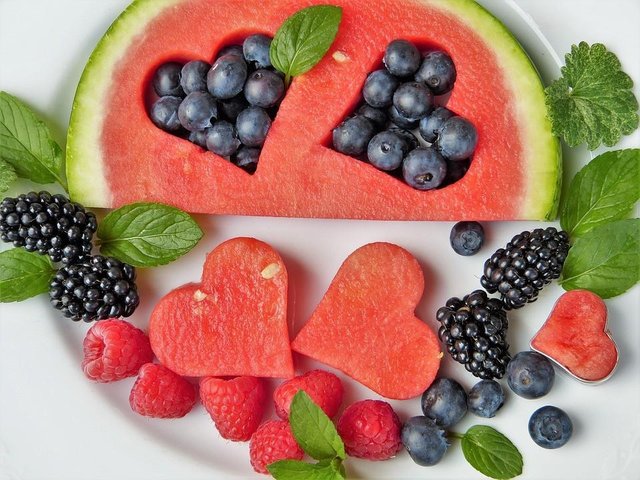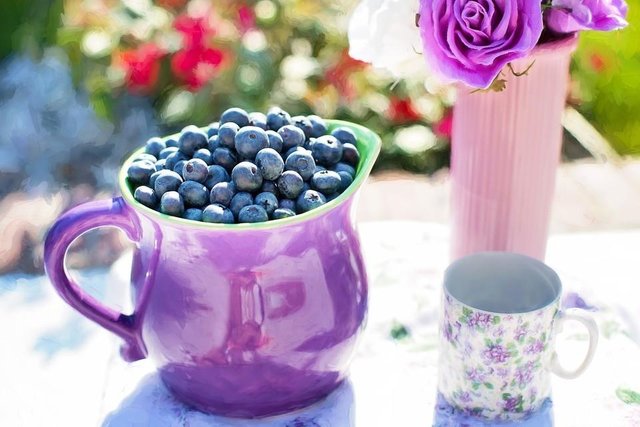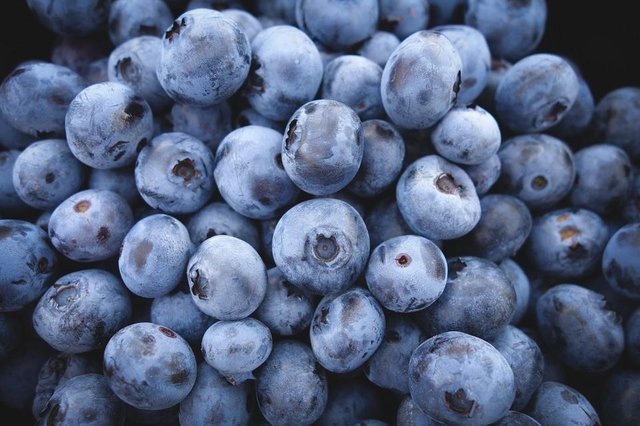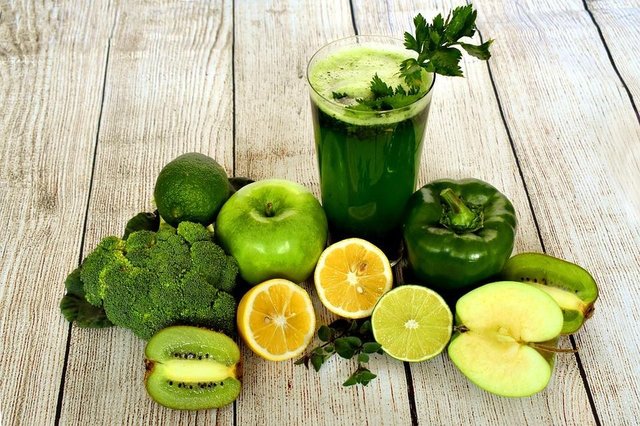Keto Diet
On a diet people still tend to think that fruit is going to operate a little bit differently within the body meaning that they're OK to have some fruit because it's not a typical carbohydrate so the reason I wanted to do this post was to a help clear up some confusion surrounding fruit and glucose metabolism but also to help give you an idea of some of the fruits that you can consume on a diet.

Even if it's just in moderation you see generally speaking people tend to take a gander at organic product somewhat extraordinary here and there they place it in an altogether unique box the extent that starches are concerned they think since it's natural product or in light of the fact that it's natural that it's not a real carbohydrate and that it won't affect them on a key genetic level however it's actually quite the opposite fruit can affect ketosis significantly more because it hits closer to home as far as the liver is concerned if you haven't already make sure you get that subscribe but you see you get all my posts you know when posting you should also make sure you get that little term

notification so you know whenever I go live but also to say never ever miss an awesome post all right so it comes out of ketosis one of the cardinal things that we have to remember is that ketones are produced in the liver so anything that is affecting the liver is going to have a dramatic impact on our ketones production and fruit towse is metabolize predominantly within the liver I mean explain all that just a second so we have a couple of different carbohydrates that we usually consume we have good old fashioned glucose and then we have fruit toast which comes from organic product you see glucose is utilized by practically each and every phone in the body whether you're in ketosis or only one out of every odd cell has the capacity of using glucose now on the other hand fruit those can only be metabolized in the liver fruit toast can not be used by every cell in the body can really only actively be processed to metabolize within the liver so right then and there it hits closer to home as far as ketosis is concerned so whenever we consume regular carbohydrates that are not coming from fruit the liver only has to take about twenty percent of the brunt of the load but when we're consuming fruit the liver has to take one hundred percent of the brunt of the load and when it comes down to restoring what's called a liver the carbohydrates that are stored in the liver it's a lot easier to store carbohydrates in the liver from fruit than it is from other carbohydrates and when it comes down to producing ketones we need the liver to be completely exhausted of glycogen or as near it as conceivable with a specific end goal to deliver the most extreme measure of ketones Now remember here since glucose can be utilized by each cell in the body when we devour glucose we have a capacity to consume it extremely quick.

But since the body can't use fruit to us whenever we consume fruit toes it has a tendency to get turned into free fatty acids and triglycerides and ultimately fat significantly easier so whenever we consume carbs our body takes glucose again the simple sugars that come from regular carbohydrates and it strings them together and strings them together into something known as glycogen and then it stores in a couple different places it takes them and it stores them on the shelves within our muscles within our skeletal muscle system and then some of it it takes in stores within our liver but there's two distinct jobs you see the skeletal muscle tissue does something different when it's glycogen in the liver does the job of the glycogen or the carbohydrates that are stored in the liver is simply to maintain blood sugar we're trying to keep our blood glucose levels elevated enough so that we constantly have enough energy now when it comes down to the muscle glycogen those carbohydrates that are stored are used only when ever we're exerting energy for activity so for example if you were to break into a sprint and you need to energy you pull up from the muscle tissue but if you just need regular blood glucose levels to be elevated for traditional life you pull it from the liver so what ends up happening is once we burn through all the liver glycogen all the carbs are stored in the liver our body has the ability to produce ketones So you see a lot of things out there that say you have to go through your entire carbohydrate stores before you ever start to burn carbohydrates and even though there is some truth to that it's an overgeneralization to try to make ketosis make a little bit more sense in reality all you have to do is burn through your liver glycogen first in fact even when you're in ketosis your levels of muscle glycogen are still elevated because you're not really tapping into them unless you're doing heavy weight training or high intensity interval training so you're really just trying to burn through the liver glycogen but knowing that we're always topping off the tank with fruit and we're never giving the body the chance to actually create ketones whereas if we were to consume regular carbs those are generally going to a different tank so we have more of an implication that can occur as far as stopping ketone production by eating food. Fruit than we do by eating straight up sugar not saying you should do either one now when it comes down to the actual metabolism of fruit it's pretty interesting and I'll give you an overall analogy to help make some sense dozens of using something called facilitated diffusion that uses the active transport chain and it takes in sugar a completely different way so I want you to imagine for a second that you are consuming at the same time a strawberry in a little bit of pasta OK what's going to happen is the pasta has glucose the Strawberry has fruit goes into your mouth the same way that it's going to go into your digestive system and when it goes into your small intestine it's going to reach a point where it needs to absorb well at this point

I want you to visualize two busses OK the glucose from the pasta is going to get on one bus and the fruit in the strawberry gets on a completely different bus but that bus only has the ability to store a few people a few molecules a strawberry if it's a smaller bus OK the bus at the glucose can get on it's big and it can carry a lot of the small bus goes straight to the liver the big bus goes throughout the rest of the body and delivers glucose and doesn't other things so you can see at that point how it's actually metabolize entirely differently within the body now there is actually a study that was published in the annals of nutrition that put this into an interesting perspective as far as exercise is concerned what they want to look at was how did fruit as compared to glucose when it came down to post exercise and actual recovery Well it was pretty interesting to see after two hours they found that a little bit of fruit actually did allow a little bit of skeletal muscle recovery but glucose did the bulk of the work but after four hours post exercise they found that almost all the fruit house had restored liver glycogen but hadn't touched muscle glycogen therefore meaning that if you were to eat fruit post workout you're not even stimulating your recovery you're adding it to the liver and that's about it so if you're on a cute diet and you were to suddenly just eat a bunch of fruit post workout you would be much more likely to kick yourself out of ketosis than if you were to have a couple grams of regular cars again not saying you should do either or so let's get to which fruits you could have in small amounts. On a diet and let me say this as a preamble to all of this you don't need to have fruits OK I'm doing this post because a lot of people say they truly miss fruits the first one I want to talk about going to some of you in turn off the post right now and this is a joke avocadoes a fat Well here's the thing avocado is a fat and it's higher in fat than it is in carbs but it's still technically a fruit and the sugar the carbohydrates that are not a condo are fruit juice so if you ever notice that you're having a bunch of guacamole or a bunch of those that you're ketone levels might read a little bit lower Well that's because that fruit is going straight to the liver so you don't want to go overboard on the avocado fact I usually recommend no more than one whole a day while you're on a diet then the next we can talk about going to Black Berries Here's the cool thing about Black Berries overall the net carbs are pretty darn low we're talking six to seven grams of net carbs in about a cup now overall you're still going to have fifteen to twenty grams of carbohydrates and you can't fiber and you can't some of these other things but what I want you to realize is that you can have a small amount maybe a quarter cup or so without ever having a problem you might temporarily start your ketone levels but since it's so low glycaemic it has such a high fiber

content it's going to absorb slow enough that you shouldn't have too much of an issue so then we've got raspberries which are in kind of a similar ballpark right they still have that same slow digesting metabolism that's going to allow them to be broken down a little bit slower they still have a high amount of fiber so it's breaking down a little bit slower but again they still have the fruit that's going to contribute to liver glycogen so want to keep it to about a quarter cup nothing crazy but if it gets your sweet tooth satisfied a little bit it's better than loading up on a bunch of artificial sweeteners then we have strawberries same ballpark except strawberries you can go a little bit higher because of a little bit higher water quantity so since there's more water in them of course the sugar is going to seem a little bit less in terms of volume so you can have maybe a half a cup or so of strawberries but make sure that you're not slicing them so that the surface area isn't compacting and you're ending up with ultimately more like a cup right now I want to clear one thing up for about this post up to insulin is not always the issue here when we look at fruit and we look at carbohydrate in general we. I always say oh it's going to create an insulin spike and we're not going to be able to be in ketosis because we're supporting insulin not always the case OK insulin is not the end all be all we still have levels of insulin that are elevated even on a diet if we look at Type one diabetic for instance the reason that a type one diabetic could ever go into ketoacidosis is because even when ketones are elevated if they don't have insulin to allow those ketones into something then you end up with ketoacidosis So we still need insulin so it's not the fact the fruit is causing an insulin spike it's more about what's happening in the way of the liver glycogen and what's happened in the way of how the liver prioritizes metabolism of certain things. ![tja3nkhos3.jpg]
You explain everything quite nice.
I will monitor my diet more to make it balanced.
Thank you ^__^
Yup fruits are a healthy diet ...no doubt about it.